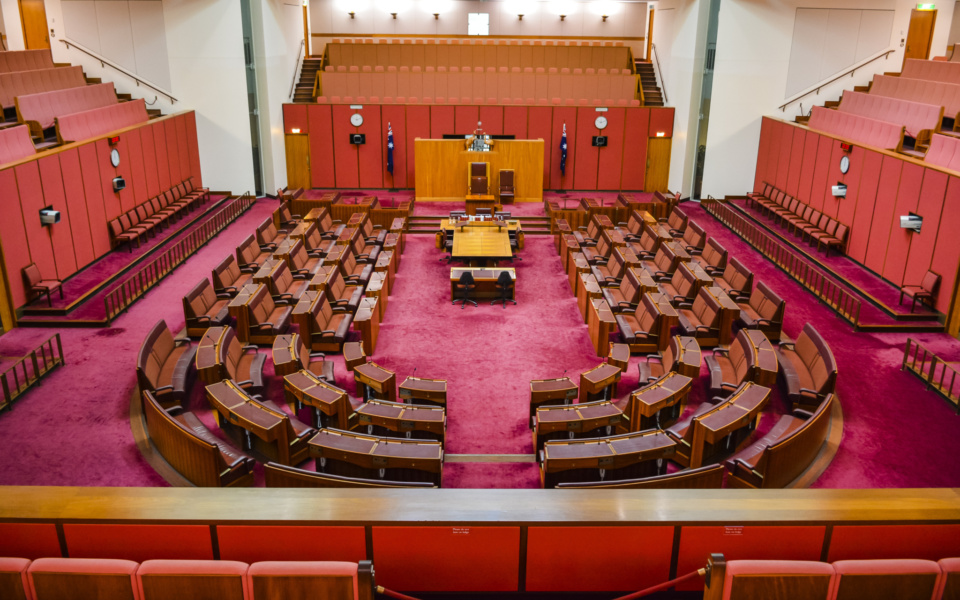
Why Australia’s community organisations need a new governance model
Posted on 25 Feb 2026
Australia’s community organisations are quietly holding society together. From local sporting clubs…
Posted on 17 Jun 2025
By Greg Thom, journalist, Institute of Community Directors Australia

Philanthropy Australia has urged the federal government not to “cherry pick” the implementation of reforms contained in the Productivity Commission’s landmark 468-page Future Foundations for Giving report.
The warning came as Canberra last week called for submissions on proposed changes to the rules relating to private and public ancillary funds.
Ancillary funds are typically private or public philanthropic trusts that function as vehicles to distribute tax deductible donations to charities over time.
Charities Minister Andrew Leigh flagged changing the names of the funds to "giving funds to better reflect their role in supporting charitable giving.
Other proposed changes in line with those recommended by the Productivity Commission (PC) report include:
While supportive of some of these changes, Philanthropy Australia CEO Maree Sidey said the government should prioritise acting on the Productivity Commission’s central recommendation of reforming the deductible gift recipient (DGR) system.
The report described the DGR system, which determines which charities can receive tax deductible donations and grants, as “not fit for purpose.”
Sidey said DGR reform was the sectors top priority, with half the nation’s 60,000-plus charities ineligible to claim DGR status.
Ineligible charities included community-run charities such as neighbourhood houses, those supporting LGBTQIA+ Australians and advocacy charities focused on the causes of disadvantage.
“We welcome the Australian government’s focus on responding to the Productivity Commission’s recommendations, but we would be concerned by an approach that involves cherry picking which reforms to progress, while not acting on the PC’s clear call for an overhaul of the DGR system,” said Sidey.
“The costs of inaction on DGR reform will be borne by all those charities left outside of the system, given they will continue to be cut off from sources of support, including from giving funds.”
“Giving funds are an enabler of generosity, providing an essential flow of support for charities doing diverse work to build a more inclusive Australia.”
Source: Philanthropy Australia
Sidey described public and private giving funds as a vital source of philanthropy for the benefit of the community.
“Giving funds are an enabler of generosity, providing an essential flow of support for charities doing diverse work to build a more inclusive Australia.”

Sidey said she supported changing the names of ancillary funds to "giving funds" and allowing them to smooth distributions across multiple years as proposed in the Productivity Commission report.
However, she was less enthusiastic about changes to the funds minimum distribution rate.
“Philanthropy Australia supports having a minimum distribution and will take a measured stance in response to any proposed changes to its rate,” said Sidey.
“We think the current arrangements work well, so we don’t see the need to increase or decrease the minimum distribution, especially given the risk of unintended consequences, such as disincentivising the establishment of new giving funds.”
Philanthropy Australia outlined its initial position on ancillary funds minimum distribution rate in its Practical Policy Priorities to Grow Giving in Australia document, released in April in the run-up to the federal election.
The government has invited sector feedback on the proposed changes via a consultation paper published on the Treasury website. The deadline is August 1.
Charities Minister Andrew Leigh said giving funds play an important role in connecting generous Australians with the causes they care about.
“While careful investment can help grow these funds over time, the government wants to ensure that donations made with tax concessions are reaching charities at the right pace.”
Canberra calls for feedback on proposed changes to charitable giving funds

Posted on 25 Feb 2026
Australia’s community organisations are quietly holding society together. From local sporting clubs…

Posted on 25 Feb 2026
Writing communications for donors, stakeholders, regulators and the public can be a relentless task…

Posted on 25 Feb 2026
A Victorian suburb's hot debate about whether trains should live underground or in the sky ended…

Posted on 25 Feb 2026
Three years after the federal government announced that national fundraising principles would be…

Posted on 25 Feb 2026
Author Andy Griffiths has spent 30 years bringing “punk rock” to children’s books, making kids…

Posted on 25 Feb 2026
Senator Dean Smith is back as shadow minister for charities, and he’s told the Community Advocate…

Posted on 18 Feb 2026
Around 50 per cent of all funding for charities in Australia comes from government. The nature of…

Posted on 18 Feb 2026
You wouldn’t try to fix a complex system with one tool. You’d widen the toolkit, improve the…

Posted on 18 Feb 2026
Australia’s champion laundry van charity, Orange Sky, has announced it is ready to expand into…

Posted on 18 Feb 2026
To have any hope of hitting the grand plan of doubling philanthropy by 2030, Australia needs one…

Posted on 18 Feb 2026
When Nyiyaparli woman Jahna Cedar travels to New York next month as part of the Australian…

Posted on 17 Feb 2026
This is the full academic version of Dr Oksana King's thoughts on the need to better compensate and…